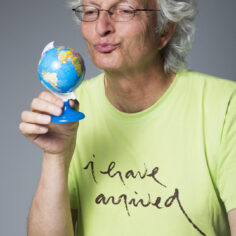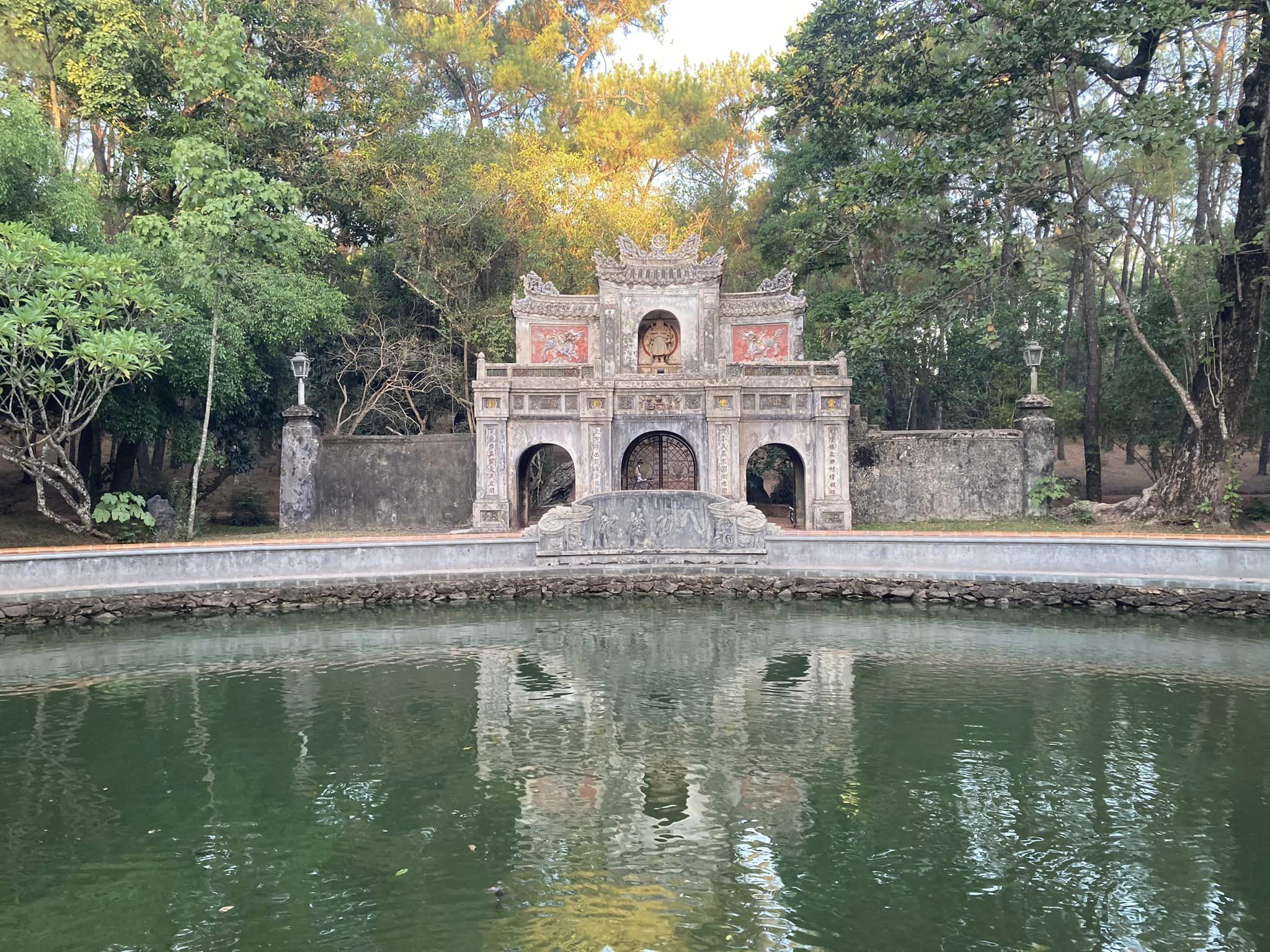Dharma teacher Manfred Folkers describes an Engaged Buddhist approach to protecting Mother Earth by remembering we already have enough.
By Manfred Folkers on
Hannover, Northern Germany, June 2, 2023, 11 a.m: thirty people walk slowly and silently in a row through the pedestrian precinct of the capital of Lower Saxony. Shoppers stare at the walkers, reading a poster on one of their chests with the words: “What I really need.” Curious to find out more,
Dharma teacher Manfred Folkers describes an Engaged Buddhist approach to protecting Mother Earth by remembering we already have enough.
By Manfred Folkers on
Hannover, Northern Germany, June 2, 2023, 11 a.m: thirty people walk slowly and silently in a row through the pedestrian precinct of the capital of Lower Saxony. Shoppers stare at the walkers, reading a poster on one of their chests with the words: “What I really need.” Curious to find out more, they look at the posters on their backs and see the words: “Clean Water,” “Compassion,” “Healthy Food,” “Integrity,” “Peace,” and “Understanding.” This two-hour walk—coordinated by the German Buddhist Union (Deutsche Buddhistische Union, or DBU) in collaboration with regional mindfulness, Buddhist, and meditation groups—hoped to inspire pedestrians to consider their consumer behaviour through the lens of climate change and environmental integrity; those who showed interest were given a flyer with more information.
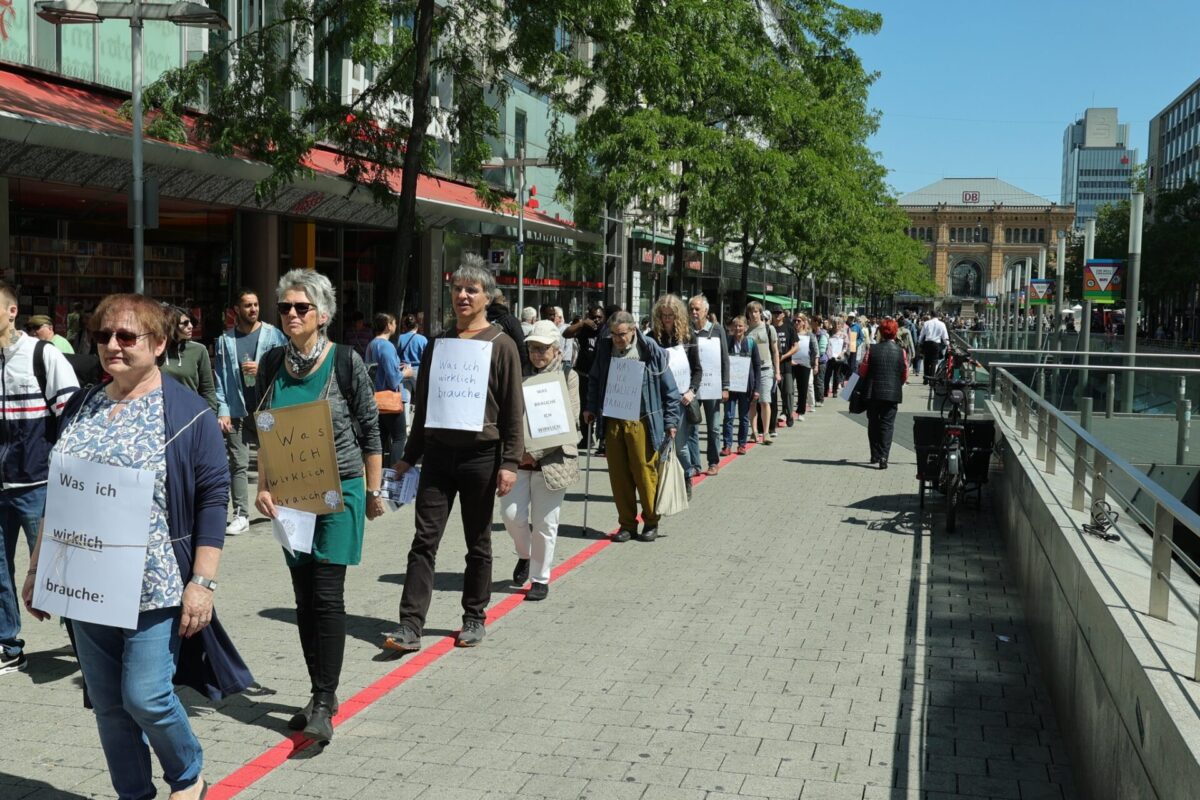
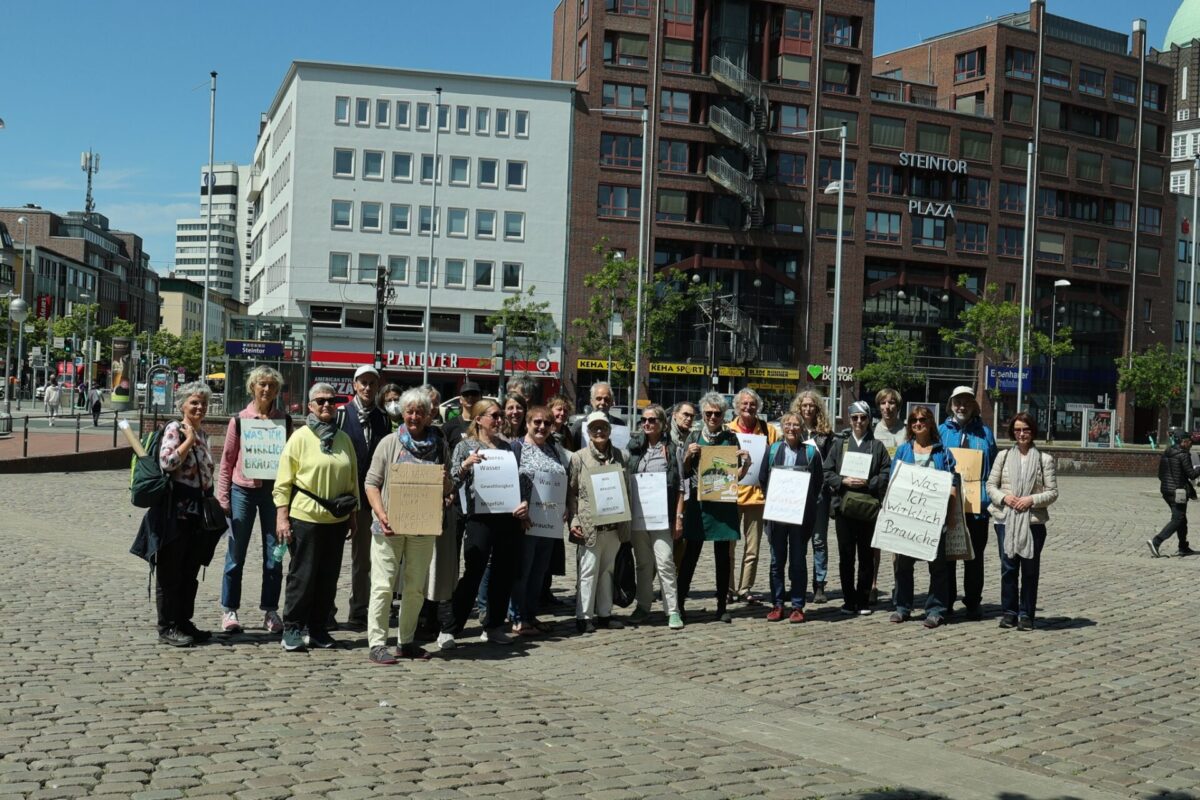
Engaged Buddhism
Hà Nội, Vietnam, April 25, 2007: in a speech during a visit to his homeland, Thích Nhất Hạnh expressed one of his most serious concerns in a short sentence: “If we continue as usual, our civilization will be destroyed.” This statement explains why he, together with the Dalai Lama of Tibet and Buddhadasa Bhikkhu of Thailand, was one of the patrons of the International Network of Engaged Buddhists (INEB), established in 1989 by Sulak Sivaraksa of Cambodia.
Thích Nhất Hạnh had already started Engaged Buddhism in the 1960s during the war in Vietnam, when he established Tiêp Hiên, the Order of Interbeing. The intention to respond to the world can be found in all of Thầy’s activities, Dharma talks, and books. Buddhist engagement is the main focus of The Five Mindfulness Trainings, which apply directly to social injustice, climate change, and harmful behavior. The advice to act out of compassion and understanding is very helpful to transform oneself and to transform society.
The Five Mindfulness Trainings concentrate on the connection between economy and ecology and how individuals are part of it. The message is clear: environmental protection must be a top priority. Saving the planet is more important than growing the economy.
To realize this, we have to understand both how humans are involved in our modern economic system, and the fatal results of this collaboration. The most important source of individual suffering is greed: our yearning, craving, and clinging, especially to material things. Greed, together with hatred and ignorance, is the most toxic poison in our mind.
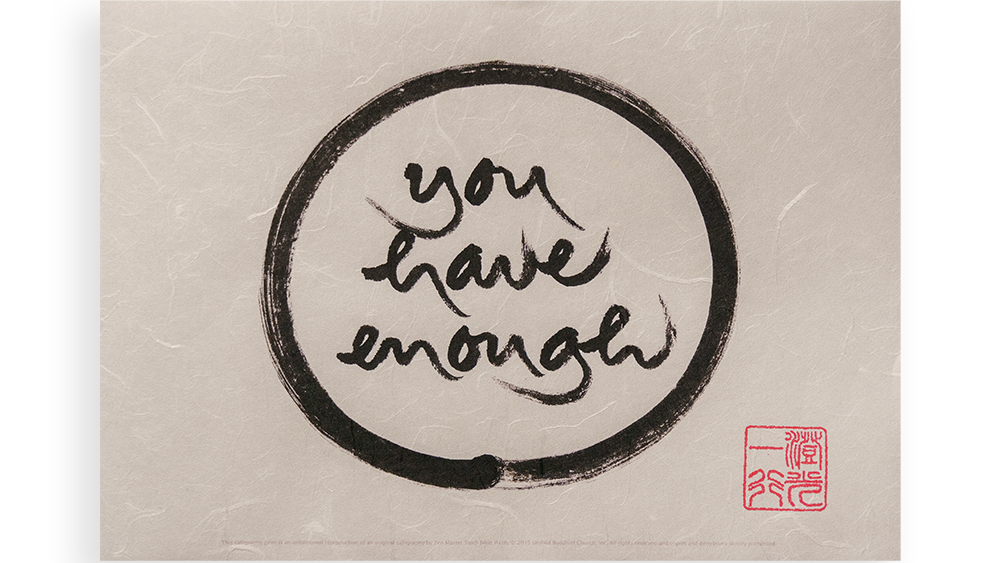
Too much is not enough
Not only are the economic rules driven by this fateful motivation, but the “greed economy” promotes it in every direction and on every level. This system has lured us into a trap. Infinite growth is impossible on a limited planet. We are stuck at a dead end, forced to increase production and to expand circulation and commercialization. The risky consequences for the environment and our civilization are increasingly visible in the present and will get stronger and more painful in the future.
In the end, this attitude is a devastating cause for effects like global climate change, extinction of lifeforms, migration, civil wars, and so on. But identifying human beings as the cause of these problems also includes the insight that we are the starting point of all solutions, too. Our engagement matters. Our behavior, activities, and transformation are important in determining the ways out of our desperate situation.
Tiêp Hiên and Buddhist communities are not the only ones who prefer mindful ecology as an orientation for action. Many other non-Buddhist communities and organizations also cultivate well considered, forward looking, and healthy ways of acting for environmental protection. They try to support careful production and management of food, energy, clothes, goods, and so on. They prefer compassion and helpfulness over egoism and hard-heartedness in order to limit their ecological footprint.
However, more and more people worldwide seem to be acting according to the motto, “Too much is not enough.” Every year, they overstep their Earth Overshoot Day earlier in the year, many of them at the beginning of January. Their ecological footprint is more than twenty times as high as the planet can stand.
Samtusta
Our Sangha, Mindfulness in Oldenburg, planned a walking meditation similar to the one described above in Hannover. We try to cooperate not only with other Buddhist and meditation groups, but also with environmental and political groups. Although we want to point out that mindful consumption is a way of integrity, we prefer the slogan, “What I really need” rather than “What you really need.” We see our demonstration not as pressuring others, but rather as giving food for thought.
We know it’s not easy to overcome the ardent longing for more, bigger, and faster in favor of a balance of taking and giving or the cultivation of a Middle Way. We agree with the American Buddhist scientist Joanna Macy, who saw the necessity of a “transformation at the base” (this was the phrasing she used during a seminar in the 1990s, which still resonates deeply today). We have experienced the practice of mindfulness as very helpful in working toward transformation.
The mutual inspiration of mind and engagement is a wonderful source of power for a change of behavioral patterns. One goal of this transformation should be samtusta, an Indian word Thích Nhất Hạnh defines as “you have enough.” On a social level, samtusta leads into a “culture of enough.”
Since 2009, I have coordinated the Buddhism & Environment working group of the German Buddhist Union. Our vision and mission (Dharma and engagement) is summarized in a statement by Sister True Vow in The Mindfulness Bell: “The more you love Mother Earth, the less you will want to take what you do not need.”
